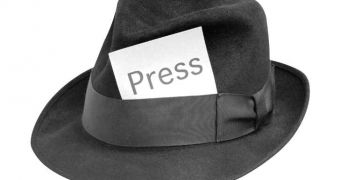Over the past few weeks, ever since the entire NSA scandal began, I have watched the story unravel with more and more details being revealed about what type of data the NSA is collecting and whom it concerns.
I have also watched with interest how the entire story was viewed all over the world. The majority of news outlets have written about the important facet of the subject, namely what the NSA had been doing, how that affects the world and why everyone has a right to know about these programs.
However, there have also been numerous articles written about how Snowden is a traitor for revealing classified information or trying to deflect attention from the real problem by approaching subjects that borderline on tabloid news.
The most outrageous thing happened in this past week, however, and that’s the insinuations made by an American reporter that Glenn Greenwald, one of the two journalists that have access to Edward Snowden’s documents, should go to jail for publishing this type of information in The Guardian.
This has opened up a whole new can of worms that perhaps has very little to do with the Snowden case, but more with the state of the media around the world.
I was taught back when I was studying Journalism that in a democratic society the press was one of the state’s unofficial powers, that it played the role of watchdog over the government and that it should make sure to tell the people when any government overreaches its boundaries and breaks all and any rules, whether these are laws or human rights.
The notion that a journalist should go to jail for revealing something of worldwide interest is audacious. The fact that it comes from another journalist just makes it worse.
Maybe I’m an idealist when I believe that the media should be out of reach for politicians. I know this is possible in very few areas and I am aware of how much the government interferes.
I know how important it is to have a trustworthy source that has a good standing inside a political party, an organization or a company, depending on the area one covers, but that doesn’t mean that journalists have to bow their heads in front of these people. It also doesn’t mean that their words must not be questioned.
What has happened now, in the Snowden case, is exactly what the media was meant to do and has been doing for many years. To taint the importance of this case just to make the government happy isn’t something a journalist should do in any capacity.
Of course, the law has many shades and loopholes left by politicians for cases such as these, but the fact remains that the freedom of the press should be protected just as fiercely as other basic human rights, such as the freedom of speech and opinion.

 14 DAY TRIAL //
14 DAY TRIAL //